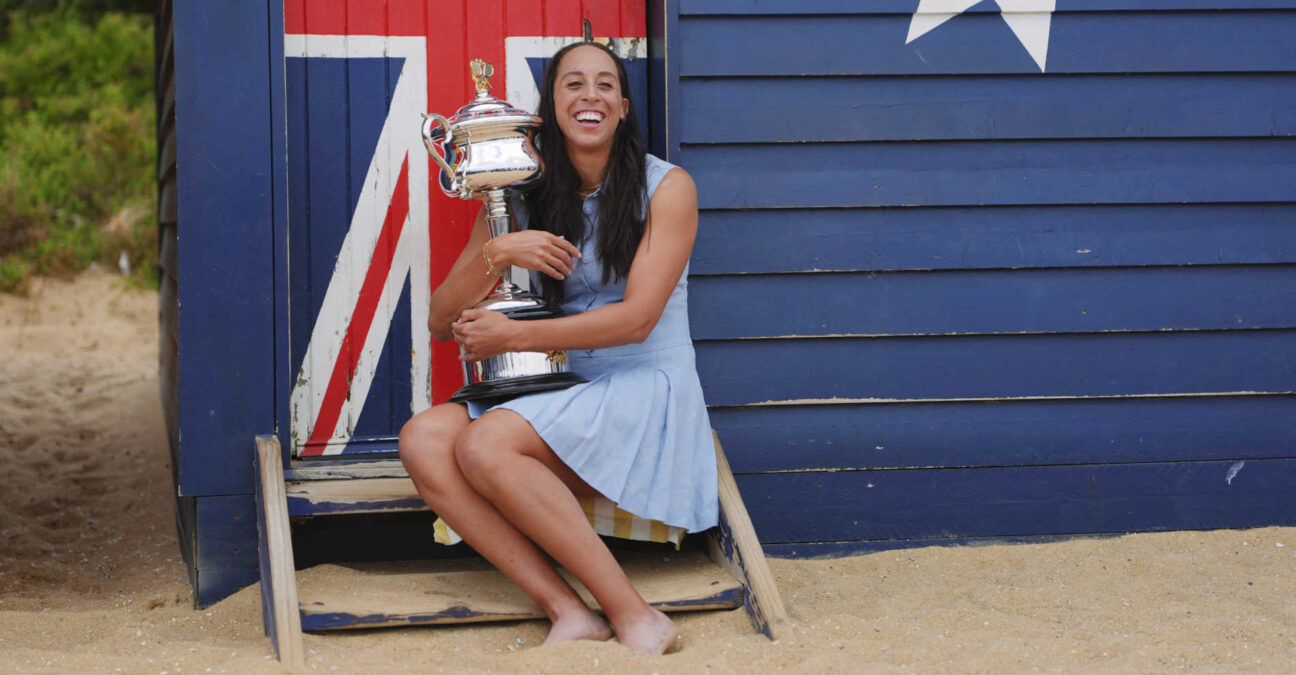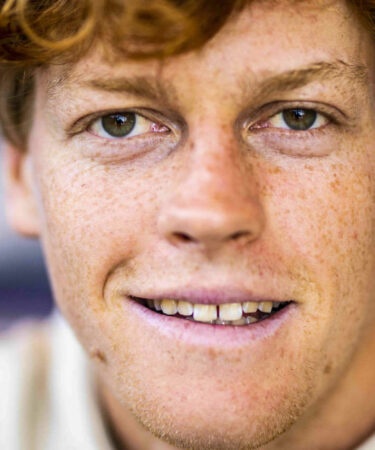Victorious Keys: “I was starting to find my game last year”
The American admitted she used to suffer from something of an inferiority complex, believing others dealt better with difficult situations
 Madison Keys, Australian Open, Brighton Beach Boxes , 2025 | © AP Photo/Ng Han Guan/SIPA
Madison Keys, Australian Open, Brighton Beach Boxes , 2025 | © AP Photo/Ng Han Guan/SIPA
Newly-crowned Grand Slam champion Madison Keys says she was beginning to see her best tennis come through last year, even as she suffered more interruption to her career because of injury.
The American, who beat Aryna Sabalenka to win the Australian Open on Saturday night, spent a lot of time in therapy, realising that she needed to be happy with herself before she could really hit top form, without the pressure of expectation weighing her down.
The fruits of that work were plain for everyone to see as Keys dethroned Sabalenka, but that match was the culmination of a long process, she said.
“I honestly think kind of through the last year, even with the injuries and some tough losses, I just kind of felt like I was kind of starting to find myself a little bit more,” Keys said. “I was starting to be a little bit more clearheaded and present on court. I felt like I was starting to get better at problem-solving on court in the moment a lot better.
“In the past, I kind of felt like sometimes during matches, especially when things started to go awry, I was almost, like, not in my own body and I was kind of looking down at myself. I felt like I couldn’t connect my brain to my body.
“I felt like last year I started being able to kind of just be more in the moment and take each point by point instead of panicking and getting a little bit too broad.”
Figuring things out when not playing great
Everyone can win matches when they are playing their best; coping with difficult moments and coming out the other side is often what separates the very best from the rest.
“I felt like I started playing some good tennis and I started figuring things out when I wasn’t playing great,” she said. “Then through off-season, I just put in a lot of hard work. I kind of started to see that things were kind of going more the way that I wanted.
“I just feel like it’s one of those things that slowly keeps building. All of a sudden you’re winning a bunch of matches in Adelaide (Keys won the title there). Then you’re coming in here. I think winning that match the other night against Iga (Swiatek) was really kind of a big hurdle where I felt like…I always believed that I could do it, but to do it that way I think really I thought to myself after the match that I can absolutely win on Saturday.”
Reaction from other players
Keys’ success has been greeted with widespread joy from her peers, the American one of the most popular players on Tour. Strings of messages of support poured in from fellow players and other sportsmen and women, a sign of their affection.
“I have really grown up on the Tour,” she said. “I’ve grown up with some other amazing people on this tour. Some of my closest friends also play.
“So I think we all are very good at cheering each other on. Their wins feel like our wins. So to be in the position of actually winning and them getting to be the cheerleaders, it feels really nice just because after all these years, watching all of my friends do so well, it has always felt like a win for me. I’m happy that I can repay the favour.
Inferiority complex has gone
Keys also said that she had effectively had an inferiority complex when she saw other players coping with difficult situations better than she was.
“I think for a long time in my head I had this idea that people were able to kind of just ignore their nerves or doubts or anything like that and just kind of play tunnel vision tennis,” she said.
“In the past, if I ever had nerves come up or something, I typically would not play as well. So it started getting to the point where when nerves came up, I was thinking, Oh, no, now I’m going to play badly. It would almost kind of start this internal panic.
“For whatever reason, it was kind of just like this light bulb moment where I started really buying into, I can be nervous and I can still play good tennis. Like, those things can live together. So I stopped fighting trying to push away the feelings and pretending that they’re not there and just accepting them and really telling myself that they’re fine and they’re totally normal to be there, and I can still play tennis.
“I think doing that day in and day out and just kind of accepting that it’s going to be uncomfortable, you’re going to be nervous, there’s going to be thousands of people watching you, but you can still do it, and then starting to actually be able to do that just kind of started to give me more confidence.”
Keys will equal her career-best ranking of No 7 when the new WTA list is updated on Monday.









